Report Launch: Building a Better Lebanon
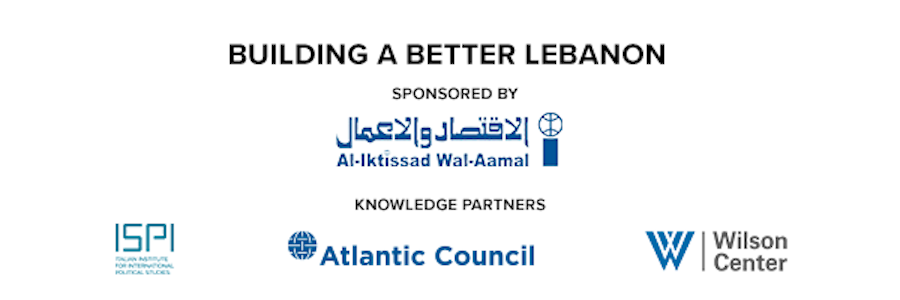
For almost a year and a half, Lebanon has been assailed by compounded crises—specifically, an economic and financial crisis, followed by COVID-19, and lastly, the explosion at the Port of Beirut. A confluence of government malpractice, economic instability and external interference has driven Lebanon’s devastating crisis. Without significant change, there are concerns it could persist indefinitely. With the economy now in dire straits, the parameters which govern the shaping of a new Lebanon need examination. It is time to examine a two-stage approach; the first stage focusing on a minimal program to rescue the financial system, buying time to build a consensus on a full reconstruction and reform plan. This virtual conference marked the launch of the Building a Better Lebanon report, co-authored by Ambassador James Jeffrey, Merissa Khurma, Rand Ghayad, and Hung Tran. The project, sponsored by Beirut-based Al-Iktissad Wal-Aamal, was organized in partnership with the Atlantic Council and the Italian Institute for International Political Studies.
David Hale, Distinguished Diplomatic Fellow at the Wilson Center and former Ambassador to Lebanon, opened the conference arguing that economic reform is unattainable in Lebanon until its leaders recognize the urgency of the political and economic crises. The United States is unable to help the country unless its politicians do their part. In addressing Hezbollah’s stronghold in Lebanon, Hale noted “No state can live up to that name of being a state so long as one faction answering only to a foreign capital can make life and death decisions for all the state’s citizens.”
Following Hale’s remarks, Rand Ghayad, Adjunct Professor at Harvard University and Former Economist at the International Monetary Fund, contended that the problem in Lebanon is no longer an economic crisis, but a humanitarian one given its magnitude and impact on the people. Ghayad proposed that while Lebanon’s government must undergo significant reform, the first step should be, “a very simple, transparent program focused in the immediate term, on what (he) calls the low hanging fruit… that delivers just very quick, tangible, and wide ranging benefits for everybody in the economy.”
In addition to supporting people and incomes, Hung Tran, Atlantic Council Senior Fellow and Former Executive Managing Director at the Institute of International Finance, raised the issue of Lebanon’s spiraling fiscal crisis. He argued that Lebanon must undergo a comprehensive audit of the central bank and banking system to encourage capital inflows from abroad. “They will need to demonstrate that they are willing, happy, and able to undertake at least the minimum reform in the banking system to get that support.”
Merissa Khurma, Director of the Wilson Center’s Middle East Program, posed that international development programs in Lebanon should focus on increasing women’s capacity to do business and on skilling the labor force in all its forms. Despite a high education rate amongst Lebanese women, they only own 10 percent of the country’s businesses. Khurma proposes at least 50 percent of development assistance should be allocated to women. Further, to improve labor market opportunities and outcomes, programs should aim to “invest in skills that the market needs [which] requires, of course, ongoing dialogue between the private sector and civil society, as well as higher education.”
Internal Reform
The Lebanese people have lost faith in their leaders. Elite interests have enriched the well-connected and squandered wealth invested by the diaspora. With 50 percent of the population living below the poverty line, the general population can barely feed their family or access basic healthcare. The public’s discontent with the status quo was on vast display in October 2019 as protests erupted across the country. Ambassador Hale acknowledged the public sentiment at the time, “that those winning do so by virtue of corruption [and] access to public funds.”
Only when comprehensive reform is enacted can Lebanese leaders regain the trust of their people and confidence of the international community, both of which are critical to achieving economic stability. International financial institutions, such as the International Monetary Fund and World Bank, can provide technical assistance for long-term institutional reform. However, “Any stabilization plan needs to be very well tailored to the Lebanese situation… If you bring all the financial resources today and you dump them into Lebanon, we have a lot of capacity constraints. We won’t be able to solve the problem,” argued Ghayad. In this way, realistic, short-term steps towards augmenting transparency are a critical first step.
The challenge of total economic overhaul
The depth of the financial and economic crisis in Lebanon is staggering. “There’s an immediate catastrophe upon us, which is the financial situation… it’s reached a point where collapse is imminent,” noted Ambassador Hale. However, the reform process will not bring immediate prosperity. The banking sector is the primary source of Lebanon’s fiscal crisis, but Tran warned that reform will be extremely painful for all segments of society. “We talk about bank restructuring as if it is something technical that can happen aloof from the day-to-day life of the people. No, the opposite is true. If you restructure the banking system in Lebanon, that will inflict huge losses in savings and wealth of most of the population in the country.”
Mohsin Khan, Atlantic Council Senior Fellow and Former Middle East and Central Asia Director at the International Monetary Fund, made the same argument earlier in the discussion. Though rehabilitation of the banking system in Lebanon is essential, it will require a tremendous amount of financing. Yet, the cost of reform will not be solely, “borne by the wealthy… everyone is going to share those costs. Even the people who suffered the most will be asked to suffer some more.”
Engaging the diaspora and civil society
The panelists stressed the importance of the diaspora in stabilizing the Lebanese economy. Khurma noted, “the Lebanese diaspora was so successful in coming together and providing their families and friends with funds after the [Beirut] explosion.” Tapping into the fiscal and entrepreneurial resources of the diaspora will translate into tangible progress in Lebanon. For example, the issuance of diaspora bonds is one channel through which Lebanon’s vibrant expatriate community can invest in their country of origin.
With a rescue plan in place, many long-term steps are necessary to achieve sustainable change in Lebanon. The process must include all sectors of society and the economy, as Dr. Khan put it: “The new economic model has to emphasize other sectors of the economy, whether it’s agriculture, or manufacturing, certainly technology, these are the sectors that future Lebanon must have.” This robust approach that engages the entire country can ignite the necessary political changes from the grassroots level. Khurma believes a consultative process, “should include members of civil society, of the private sector, and those activists who are protesting, demanding change,” adding, “that’s also one way to ensure that you have new emerging leaders in Lebanon.”
Speakers

Adjunct Professor, Harvard University; Former International Monetary Fund Economist
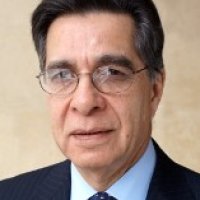

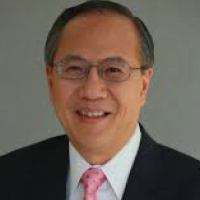
Introductions
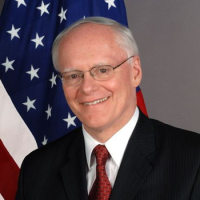
Former ambassador to Iraq and Turkey, and Special Envoy to the Global Coalition To Defeat ISIS
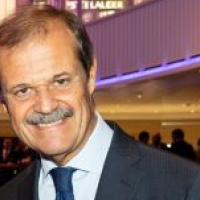
Keynote Speaker
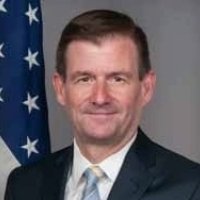
Former Under Secretary of State for Political Affairs; Former Ambassador to Pakistan, Lebanon, and Jordan
Moderator
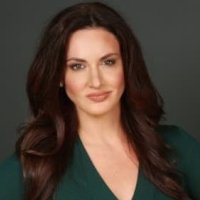
Hosted By

Middle East Program
The Wilson Center’s Middle East Program serves as a crucial resource for the policymaking community and beyond, providing analyses and research that helps inform US foreign policymaking, stimulates public debate, and expands knowledge about issues in the wider Middle East and North Africa (MENA) region. Read more


The MENA Workforce Development Initiative
The Middle East and North Africa Workforce Development Initiative (MENA-WDI) aims to assess both current and projected challenges facing the region in developing the workforce and the implications for peace and stability. Read more
